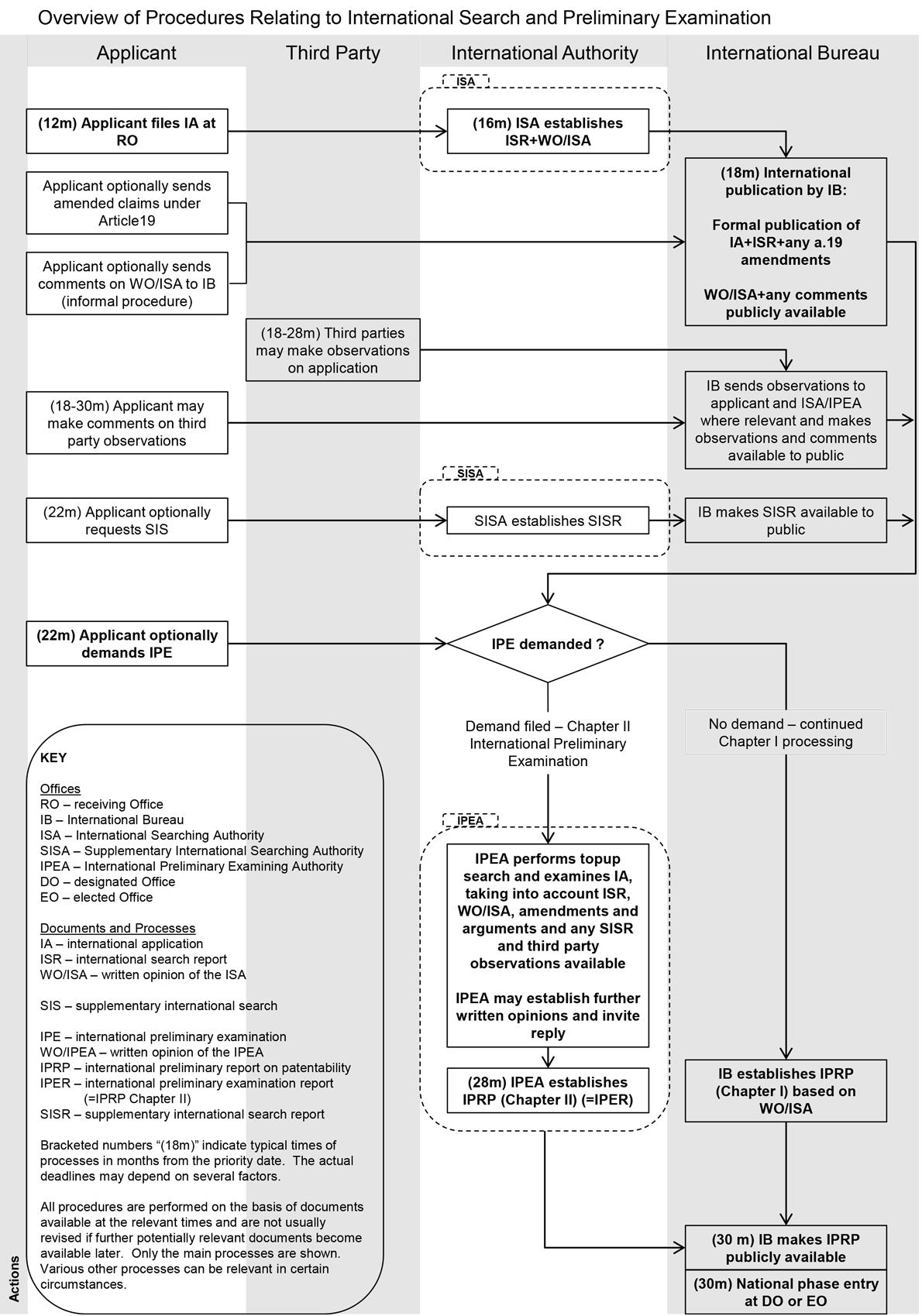PCT International Search and Preliminary Examination Guidelines
PART I INTRODUCTION AND OVERVIEW
Chapter 1 Introduction
Articles 16, 32; Rules 35, 36, 59, 63
1.13 The International Searching Authorities and International Preliminary Examining Authorities are national Offices or intergovernmental organizations entrusted with a number of tasks under the Treaty, especially the establishment of international search and preliminary examination reports. Authorities are appointed by the Assembly of the PCT Union. The requirements for appointment are such that Authorities must necessarily be appointed in both capacities (that is, to undertake both search and preliminary examination). Details about the functions of Authorities and the requirements of particular Authorities are set out in Annexes D, E and SISA of the PCT Applicant's Guide. The Authorities meet together regularly in sessions of the Meeting of International Authorities under the PCT (PCT/MIA) (see WIPO's web site via www.wipo.int/en/web/pct-system/index).
1.14 One or more Authorities may be competent to search or examine a particular international application. This depends on agreements between the International Authorities and the International Bureau, together with a decision which has been notified to the International Bureau by each receiving Office concerning which Authorities are competent to act in respect of international applications filed with that Office. Where more than one Authority might be competent to perform the search or examination of any particular application, the applicant chooses the desired Authority in the request or demand. International Searching Authorities may each decide whether they wish to offer a supplementary international search service, which will then normally be available to any applicant for whom that Authority did not perform the main international search.
1.15 The International Preliminary Examining Authority for any particular application will usually be the same body as the International Searching Authority, but this is not necessarily the case. A different Authority may be specifically chosen by the applicant or else, occasionally, an Authority may be competent to search a particular international application but not to examine it. Consequently it is particularly important that both the international search report and the written opinion by the International Searching Authority are produced to consistent standards, so that they may be used effectively by any other Authority, as well as by applicants and designated Offices.
Flowchart of Typical International Application Processing
